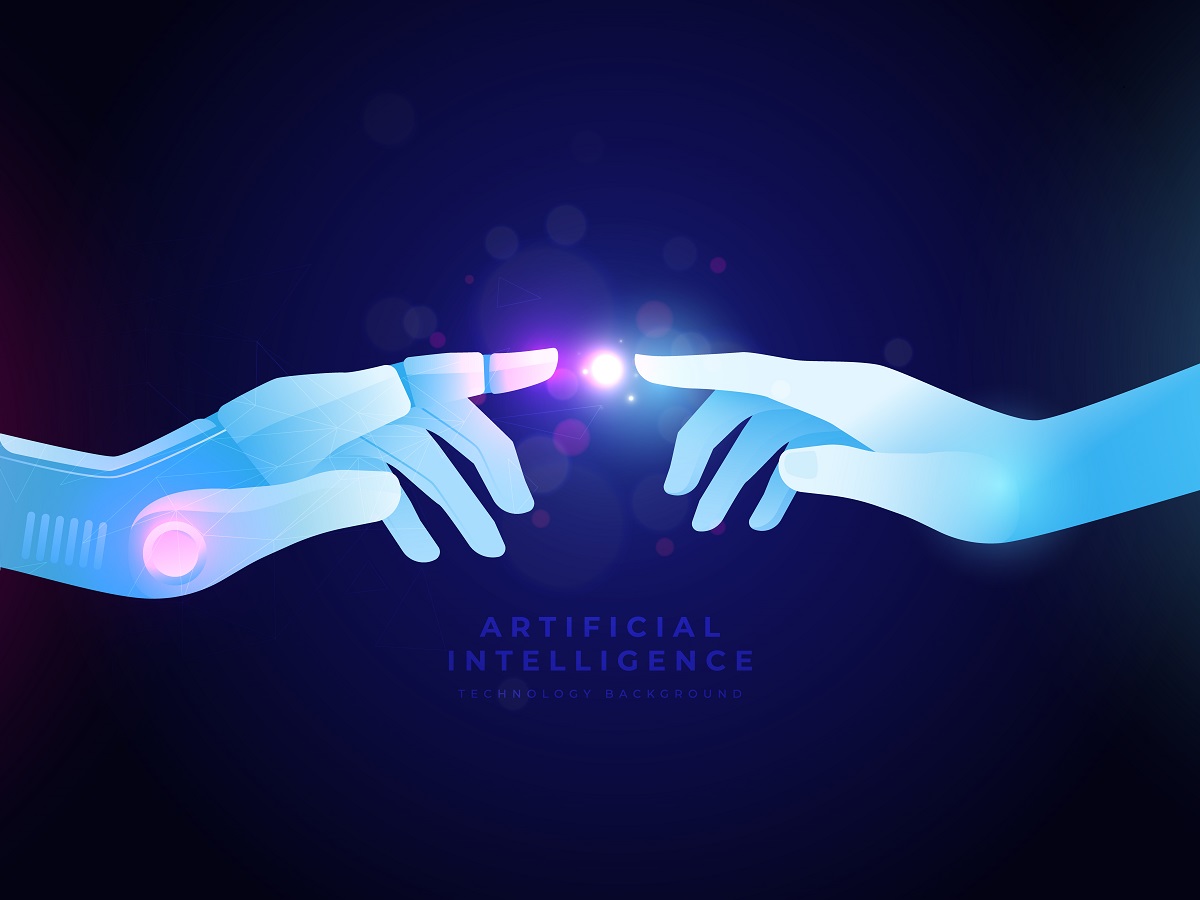AI has become an integral part of many industries, and customer service is no exception. AI-powered customer service can improve the customer experience by providing faster, more accurate, and personalized support.
In this article, we will explore the benefits and challenges of AI customer service, how it works, and its impact on the future of customer interaction. We will also discuss specific ways to use AI in customer service, including through ChatGPT and VoIP systems.
What is AI customer service?
AI customer service uses artificial intelligence (AI) to provide customer support. AI-powered customer service tools can help businesses automate repetitive tasks, provide personalized recommendations, and offer quick and efficient support to customers.
By using AI in customer service, businesses can improve their response time and accuracy while reducing costs.
How does AI customer service work?
AI customer service uses algorithms to analyze customer inquiries and provide appropriate responses. AI can do this through chatbots, voice assistants, or other AI-powered tools. These tools can also learn from previous interactions to improve their responses.
Using natural language processing (NLP) and machine learning (ML) algorithms, AI customer service tools can provide customers with more personalized and accurate support.
Benefits of AI customer service
There are several benefits of using AI in customer service. These include:
- 24/7 availability: AI-powered customer service tools can provide support around the clock, even outside business hours.
- Faster response times: AI-powered tools can quickly analyze customer inquiries and provide appropriate responses, improving response times.
- Cost savings: By automating repetitive tasks and reducing the need for human support staff, AI customer service can help businesses save on costs.
- Personalized support: AI-powered tools can analyze customer data to provide more customized support and recommendations.
- Scalability: AI-powered customer service tools can simultaneously handle large volumes of inquiries, making it easier for businesses to scale their support operations.
Challenges of AI customer service
While there are several benefits to AI customer service, there are also challenges to consider. These include:
- Lack of human touch: AI-powered customer service tools lack the human touch that some customers may prefer.
- Limited understanding of complex issues: AI-powered tools may struggle to understand and respond to complex customer inquiries.
- Risk of errors: AI-powered tools may make mistakes, especially when learning from previous interactions.
- Ethical considerations: There are ethical considerations to using AI in customer service, such as ensuring the protection of customer data and avoiding bias in AI algorithms.
Examples of AI customer service tools
AI has revolutionized customer service by providing businesses with a range of tools that can help streamline and expedite customer outreach. Many tools include conversational AI features that allow more natural interaction, while others focus on data and processes.
Chatbots are usually what comes to mind first when we think of AI and customer service. That’s because they’re one of the first AI tools to be used for serving customers. Chatbots are programmed to interpret a customer’s problem and provide instant customer support through websites, messaging apps, or social media platforms.
Data enrichment is another AI tool that can help businesses improve their customer service by providing more detailed information about their customers. This information can be used to personalize customer interactions and provide more relevant solutions.
Recommendation engines use customer data and machine learning algorithms to provide personalized product or service recommendations.
Intelligent routing is another AI tool that can help businesses improve customer service by routing customers to the right agent or department based on their needs. For example, In VoIP systems, intelligent routing can be used to enhance the customer experience by ensuring that calls are directed to the best-suited agent or department to handle the specific inquiry or request
Voice assistants can provide more personalized and efficient customer support by using natural language processing to understand customer inquiries. Apple Siri, Amazon Alexa, and Google Assistant are well-known examples of voice assistants that can handle customer service tasks.
Predictive analytics is another AI tool that can help businesses improve customer service by predicting which customers are most likely to churn or which products they’re most likely to buy.
Impact of AI customer service on customer interaction
AI customer service has the potential to significantly improve the customer experience by providing faster, more accurate, and personalized support. Customers can receive support around the clock without waiting for business hours.
AI-powered tools can also analyze customer data to provide more personalized recommendations and support. However, they may lack the human touch that some customers prefer. Businesses must balance automation and human support to provide the best customer experience.
How to implement AI customer service
Implementing AI customer service requires careful planning and consideration. Businesses must determine which tasks to automate and which to keep as human-led. They must also choose the right AI-powered tools and ensure their integration with existing systems.
Businesses must also train their staff to work with AI-powered tools and monitor their performance to ensure they provide accurate and efficient support.
Using ChatGPT for customer service
ChatGPT is an AI-powered language model that can be used for customer service. ChatGPT can analyze customer inquiries and respond appropriately, offering personalized customer support.
To use ChatGPT for customer service, businesses must first train the model on their specific domain and ensure it is integrated with their existing systems. ChatGPT can then be used to handle customer inquiries through messaging apps, websites, or other channels.
Using AI in VoIP systems for customer service
VoIP systems can also be enhanced with AI-powered customer service tools. AI-powered voice assistants can help customers place orders, make reservations, or provide other support through voice commands. These tools can also use speech recognition and natural language processing to provide customers with more accurate and personalized support.
Ethical considerations of AI customer service
There are ethical considerations to using AI in customer service. Businesses must ensure that customer data is protected and used ethically. They must also avoid bias in AI algorithms and ensure customers are aware when interacting with an AI-powered tool.
Transparency and ethical considerations are essential to ensure that AI customer service is used in a responsible and sustainable way.
Future of AI customer service
AI customer service is expected to continue to grow and evolve in the coming years. Advances in natural language processing and machine learning are making AI-powered customer service more accurate and personalized.
As businesses continue to seek ways to improve the customer experience and reduce costs, AI-powered customer service will become increasingly prevalent.
Conclusion
AI-powered customer service is an exciting and rapidly growing area of customer interaction. While AI has benefits in customer service, there are challenges and ethical considerations to consider.
Finding a balance between automation and human-led support is essential to provide the best customer experience. With careful planning and consideration, businesses can use AI customer service to improve their support operations and deliver better customer service.
FAQs
Is AI customer service reliable?
AI customer service can be reliable, but it depends on the specific tools and their implementation. Businesses must ensure that AI-powered tools are accurate, efficient, and integrated with their existing systems.
Will AI customer service replace human support staff?
AI customer service may replace some human support staff, but it is unlikely to replace all human support staff. Businesses must find a balance between automation and human-led support to provide the best customer experience.
How can businesses ensure the ethical use of AI in customer service?
Businesses can ensure the ethical use of AI in customer service by protecting customer data, avoiding bias in AI algorithms, and ensuring transparency with customers when they are interacting with an AI-powered tool.
Can AI-powered customer service understand different languages?
Yes, AI-powered customer service tools can understand and respond in different languages. Natural language processing and machine translation can enable AI-powered tools to communicate with customers in their preferred language.
How can businesses measure the success of their AI customer service implementation?
Businesses can measure the success of their AI customer service implementation by analyzing metrics such as response time, the accuracy of responses, customer satisfaction, and cost savings compared to human-led support. Regular monitoring and analysis can help businesses optimize their AI-powered customer service operations.




